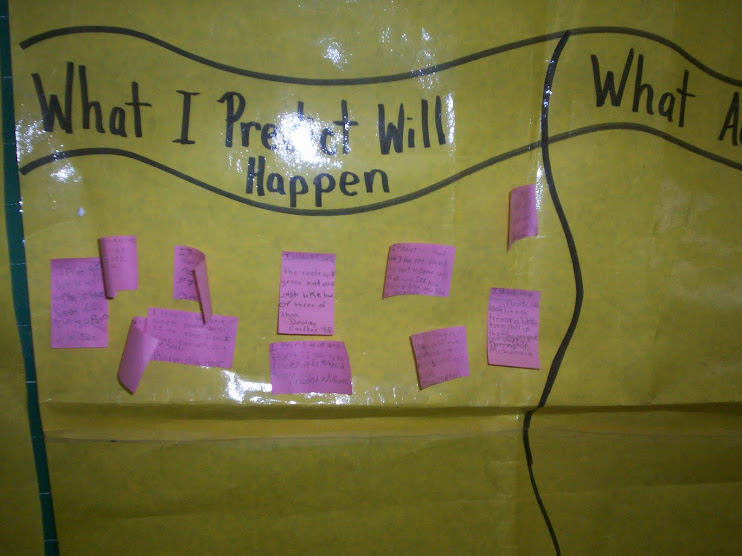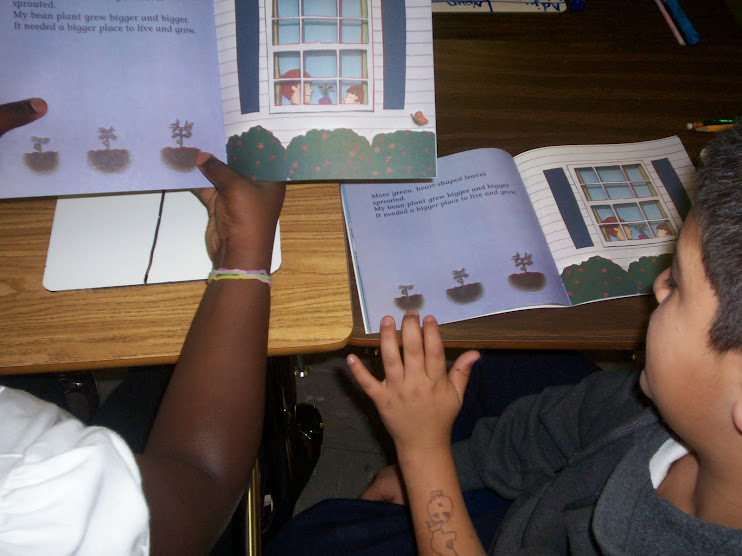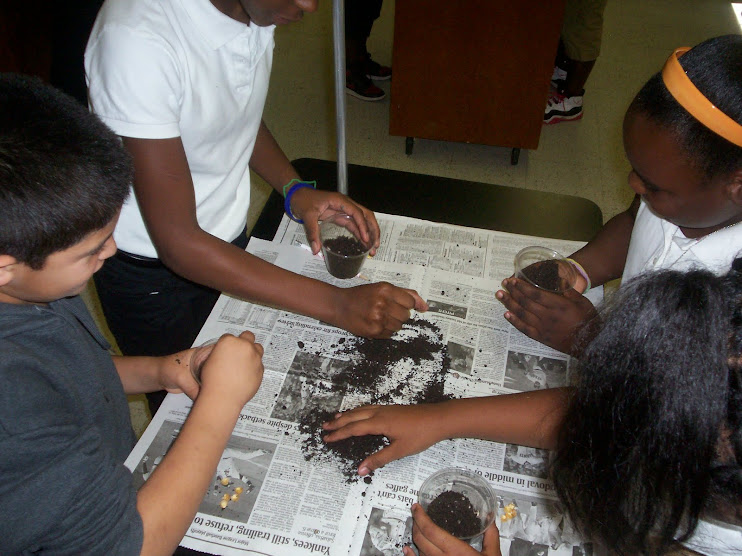Literature Review
“Half of all children will eventually learn to read at their grade-level, whether they’re taught to sound out words or to look at pictures.”
Kathy Lalfy and Debbie M. Price, (Jan. 4, 1998); The Palm Beach Post:
Learning how to read
“Educators have long argued over the best way to teach reading to children. The research, however, indicates that a highly popular method is inadequate on its own. Many teachers adopted the whole language approach because of its intuitive appeal.”
Keith Rayner, Barbara R. Foorman, Charles A. Perfetti, David Pesetsky, and Mark S. Seidenberg. (2002, March). How should reading be taught? Scientific America, 286 (3), 84-91
"Although less skilled readers are handicapped by their poor phonological skills, The results suggest that in less skilled adult readers, phonological skills are a primary factor in their reading despite some evidence of visual-orthographic compensation."
Raymond L. Majeres. (2005). Phonological and Orthographic Coding Skills in Adult Readers. The Journal of General Psychology, 132 (3), 267-280
"In this study, two experiments were conducted in order to investigate how the right and left cerebral hemispheres recognize visually presented words pre-lexically. The backward masking technique was used to target words that were backward masked orthographically and phonologically….Research yielded that each hemisphere makes a meaningful contribution to word recognition prior to lexical access."
Halderman, Laura Katherine (2006). A time course investigation of pre-lexical orthographic and phonological processes in the cerebral hemisphere. Ph. D. dissertation, University of California, Riverside, United States—California
"Whole language/language experience approaches are almost equal in results with several expectations: First, whole language/language experience approaches may be more effective in kindergarten than in first grade. Second, they may produce stronger effects on measures of word recognition than on measures of reading comprehension. Third, recent studies show a trend toward stronger effects for the basal reading program vs. whole language/language experience methods. Fourth, whole language/language experience approaches produce weaker effects with populations labeled specifically as disadvantaged than they do with those not specifically labeled. Finally, studies with higher rated quality tend to produce lower effect sizes and the lowest effects sizes were found in studies that evaluated existing programs as opposed to newly implemented experimental programs."
Stahl, Steven, and Miller Patricia (2004). Whole Language and Language Experience Approaches for Beginning Reading: A Qualitative Research Synthesis. Review of Educational Research, Vol. 59, No. 1, 87-116
"New English Language Development (EDL) Program from SRA/ McGraw-Hill supports California's English Learners with language deficiencies in phonics."
SRA/McGraw-Hill Supports California’s English Learners with State-Approved Imagine It! ELD Program. (20 November). P.R. Newswire
"Sesame Street English Workshop solicits the help of the Muppets, Elmo, and Cookie Monster just to name a few in teaching young viewers about letters, phonics, and other related concepts to deliver a more interactive approach to language learning experience via technology. Electronics like the platform-agnostic 26x two-minute Sesame Street English shorts; include a wireless Leapfrog-esque magic pen that children can use to answer questions and play games."
Emily Claire Afan. (2009, February), Sesame Street English goes digital. KidScreen, 57.
"Research based program, PCI, gains national recognition by being named the 2009 Distinguished Achievement Award recipient for its curriculum designed to aid students with developmental disabilities, autism, and significant learning difficulties. The program uses visual discrimination, the ability to quickly distinguish one letter from another, and an increase in sight-word vocabulary."
PCI Reading Program Named 2009 Distinguished Achievement Award Finalist by The Association of Educational Publishers. (20 April) P.R. Newswire
“…scientific studies indicate phonics instruction produced better reading scores than other methods.”
Reyner, Jon. (2008 December). The Reading Wars: Phonics vs. Whole Language. Northern Arizona University
“California issues report from Reading Task Force by way of State Superintendent of Public Instruction, to return to a balance in the way reading is taught with effective whole language classrooms.”
Eastin, Delaine. CSU Institute for Education Reform.(2003).Building A Powerful Reading Program: From Research to Practice
skip to main |
skip to sidebar


Wonderings began forming regarding rocky biome and seed germination.

Students begin to plant seedling in soil, sand, gravel, and pond water.

After read-aloud, students cast their plant growing predictions.

4th Grade students make predictions as to what they think will happen during the palnt cycle after reading "One Bean" by Anne Rockwell.

7th Grade Dallas ISD student has 4th Graders aid her investigation on plant growth in various conditions.

Dallas Educator, Ms. Lewis proudly sports her students efforts in creating projects about the different activities and places to visit in Mexico in honor of Cinco de Mayo.

5th Grade Bilingual students combine Reading and Math skills to construct bar graphs to depict researched information.

Line graph of female ESL student's improvements after repetitious phonemic lessons in Reading/Language Arts.

Bar graphs and line graphs depict evidence of students' growth during ESL Case Study after consistancy of differentiated, and phonemic awareness small group lessons.



After read-aloud, students conduct their own potting experience.


One student identifies the objective of Sequence from beginning, middle, to end.

Students in Plant Growth control group read One Bean by Anne Rockwell to build anticipation toward project.

Students in DallasISD celebrate Cinco De Mayo with class, style, and a smile.



Students gain knowledge of Science vocabulary word, "paleontologist." They look for shark teeth in hardend rock.


Case study groups use Bloom's Higher Order Thinking skills at the Environmental Research Center in Seagoville, TX. It is important to use all levels of students' modalities in order to increase a lesson's concepts.

Working with students in small groups during case study increased vocabulary concepts through building phonemic base. Here, students work on refining locating the right answer when reading. Apr. 2010


Students in Group D of case study brainstorm in pairs ways they can build a sentence using an interactive Literacy Chart. They must tell Who, Did What, When, and Where using Adj. that describe and Adv. that tell how.

Bravo! ESL student's confidence rises as she finally masters pulling out supporitng facts and writing them down. Three weeks ago, she was afraid to show her knowledge. Mar. 2010

ESL and Gen. Ed. students of case study use a bubble map to record facts & details that aid in memory retention of complex information. 3/11/10

ESL case study student practices Super Sentence Building by constructing a detailed paragraph. Feb.2010

Children's Books

Welcome to my weblog. I am excited about being a Teacher who uses interactive educational websites in the classroom, and in my personal business. Let this site serve as your resource for finding innovative ways in educating today's youth in this technological age.
Let the Experiment Begin!


Wonderings began forming regarding rocky biome and seed germination.

Students begin to plant seedling in soil, sand, gravel, and pond water.
7th Grade Dallas ISD Student's plant invetsigation peeks 4th Graders' interest!

After read-aloud, students cast their plant growing predictions.

4th Grade students make predictions as to what they think will happen during the palnt cycle after reading "One Bean" by Anne Rockwell.
Biomes: Can A Plant Germinate In Different Environments?

7th Grade Dallas ISD student has 4th Graders aid her investigation on plant growth in various conditions.
Educators Store For More-Become A Member
Lean on Me
Differentiated Instruction Aids Bilingual Students in Research

Dallas Educator, Ms. Lewis proudly sports her students efforts in creating projects about the different activities and places to visit in Mexico in honor of Cinco de Mayo.

5th Grade Bilingual students combine Reading and Math skills to construct bar graphs to depict researched information.
Final Synopsis of ESL Student Case Study

Line graph of female ESL student's improvements after repetitious phonemic lessons in Reading/Language Arts.

Bar graphs and line graphs depict evidence of students' growth during ESL Case Study after consistancy of differentiated, and phonemic awareness small group lessons.
Gotta Keep Reading
7th Grade Researcher Conducts Plant Growth Lab Experience



After read-aloud, students conduct their own potting experience.
Dallas ISD 7th Grader Leads 4th Grade Read-Aloud


One student identifies the objective of Sequence from beginning, middle, to end.

Students in Plant Growth control group read One Bean by Anne Rockwell to build anticipation toward project.
TeenBiz
Celebrating Cinco De Mayo

Students in DallasISD celebrate Cinco De Mayo with class, style, and a smile.


A Sharp Find!

Students gain knowledge of Science vocabulary word, "paleontologist." They look for shark teeth in hardend rock.

ESL Case Study Outing

Case study groups use Bloom's Higher Order Thinking skills at the Environmental Research Center in Seagoville, TX. It is important to use all levels of students' modalities in order to increase a lesson's concepts.
Multi-Sensory Teaching

Working with students in small groups during case study increased vocabulary concepts through building phonemic base. Here, students work on refining locating the right answer when reading. Apr. 2010

Build That Super Sentence!

Students in Group D of case study brainstorm in pairs ways they can build a sentence using an interactive Literacy Chart. They must tell Who, Did What, When, and Where using Adj. that describe and Adv. that tell how.
Look Who's Pulling It Out and Writing It Down!

Bravo! ESL student's confidence rises as she finally masters pulling out supporitng facts and writing them down. Three weeks ago, she was afraid to show her knowledge. Mar. 2010
Thinking Maps

ESL and Gen. Ed. students of case study use a bubble map to record facts & details that aid in memory retention of complex information. 3/11/10
Building Up To TAKS Writing

ESL case study student practices Super Sentence Building by constructing a detailed paragraph. Feb.2010
Pages
Internet4Classrooms
Mom's Homeroom
Literacy

Children's Books
Followers
About Me

- TSanders
- Dallas, Tx, United States
- Certified Texas State Educator for over 9 years in ESL/Gen Ed. for Grades 1-6th. *Graduate of Grambling State Univ. B.A.-Mass Comm. * Concordia Univ.; Masters of Education/Advanced Literacy
